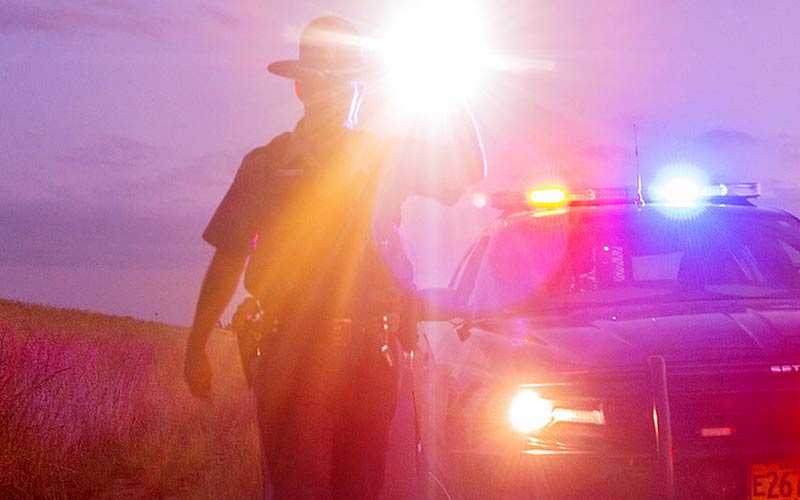
The Illinois Supreme court could decide if police officers can use the smell of marijuana as probable cause to search a vehicle during a traffic stop.
The state’s high court heard arguments in a case from Decatur. In that case, police pulled over a man after they thought they saw a fugitive in the vehicle. An officer said there was no fugitive, but reported smelling “raw” cannabis, which prompted a search. That search turned up crack cocaine.
The defendant sought to suppress the crack cocaine evidence claiming the smell of cannabis in 2017 shouldn’t be considered probable cause. The man wasn’t charged with cannabis possession. The trial court suppressed the evidence, but an appellate court overturned that suppression. The defendant then appealed the case to the Illinois Supreme Court.
Attorney Zachary Rosen, representing appellant Charles Hill, told Illinois Supreme Court justices that state lawmakers decriminalized small amounts of cannabis in 2017.
“By decriminalizing the possession of small amounts of cannabis, it expanded the protections of the Fourth Amendment right to be free from unreasonable searches,” Rosen said.
Illinois law in 2017 allowed for possession of up to 10 grams of cannabis to be considered a civil violation, the equivalent to getting a traffic citation. Police were still allowed to seize the drug. Possession of more than 10 grams was a criminal offense until Jan. 1 when the state legalized recreational cannabis for adult use.
Carson Fischer, the attorney representing the state, said the 2017 search was legitimate even after the decriminalization law.
“Decriminalization is not equivalent to legalization,” Fischer said. “Possession of even small amounts of marijuana in 2017 was unlawful.”
Rosen argued that standard doesn’t make sense anymore, not even in 2017 when the state’s medical-marijuana program allowed for legal possession by medical cardholders.
“If that logic did follow that means that all medical patients lost their Fourth Amendment rights at all times,” Rosen said, “because medical users use their cannabis, many of them daily, many of them a lot of it, they’re going to smell like cannabis, like raw and like burnt, and so they can always be searched. The Fourth Amendment will never protect them.”
While the case before the court is specific to 2017, Rosen said the court will likely get similar cases after recreational cannabis use became legal in Illinois on Jan. 1. The state’s adult-use cannabis law comes with a number of restrictions, including limiting adults to possession of no more than 30 grams of cannabis flower.
“If an officer smells cannabis, does that give the officer probable cause to search the car?” Rosen said.
The Illinois Supreme Court justices took the case under advisement.











